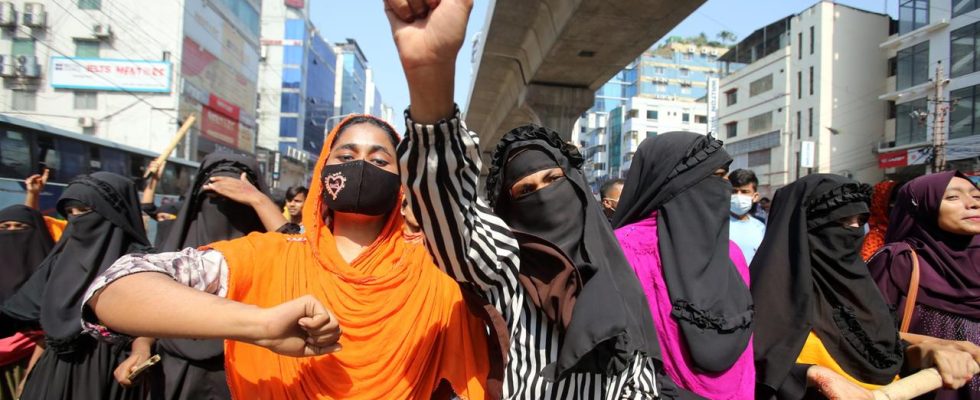Textile industry workers in Bangladesh have been protesting for higher wages for weeks. After violent riots, production is now at a standstill in 150 factories. There are expected to be further protests at the beginning of the week.
In the sometimes violent dispute over higher wages in the textile industry in Bangladesh, 150 factories have been closed indefinitely. They are in the important industrial cities of Ashulia and Gazipur, north of the capital Dhaka, police told AFP. Manufacturers therefore fear further strikes at the start of the new working week in the South Asian country.
Yesterday, Bangladesh’s Prime Minister Sheikh Hasina rejected further wage increases for workers in the textile industry. They should be satisfied with the announced increases “and continue their work,” said Hasina at a meeting of her Awami League party. “If they take to the streets to protest at someone’s instigation, they will lose their jobs and have to return to their villages.”
Workers demand that wages be tripled
A commission appointed by the government announced on Tuesday a minimum wage increase of 56.25 percent to 104 euros from December. The textile workers’ union rejected this as “unacceptable”. The wage increase is not compatible with the rising costs of food, housing rent, health care and school fees.
Workers in the country’s numerous textile factories are demanding an increase in their minimum wage to the equivalent of at least 190 euros per month, which would be three times the current level.
Already three dead in protests
There have been violent protests in recent days in which one woman was killed – the third death since the demonstrations began. On Thursday, 15,000 workers clashed with police and looted around a dozen factories, including the Tusuka factory. According to police, the demonstrators stormed around 70 factories and vandalized them. The police then initiated investigations against 11,000 unknown people – an approach that, according to critics, also serves to take action against dissidents.
Bangladesh’s capital Dhaka and its suburbs are an important center of the textile industry. Many western brands such as Gap, H&M and Aldi have clothing manufactured there. The country is one of the largest producers of textiles in the world, there are around 3,500 factories and workshops. Four million people work in the industry. Textiles account for 85 percent of exports.

